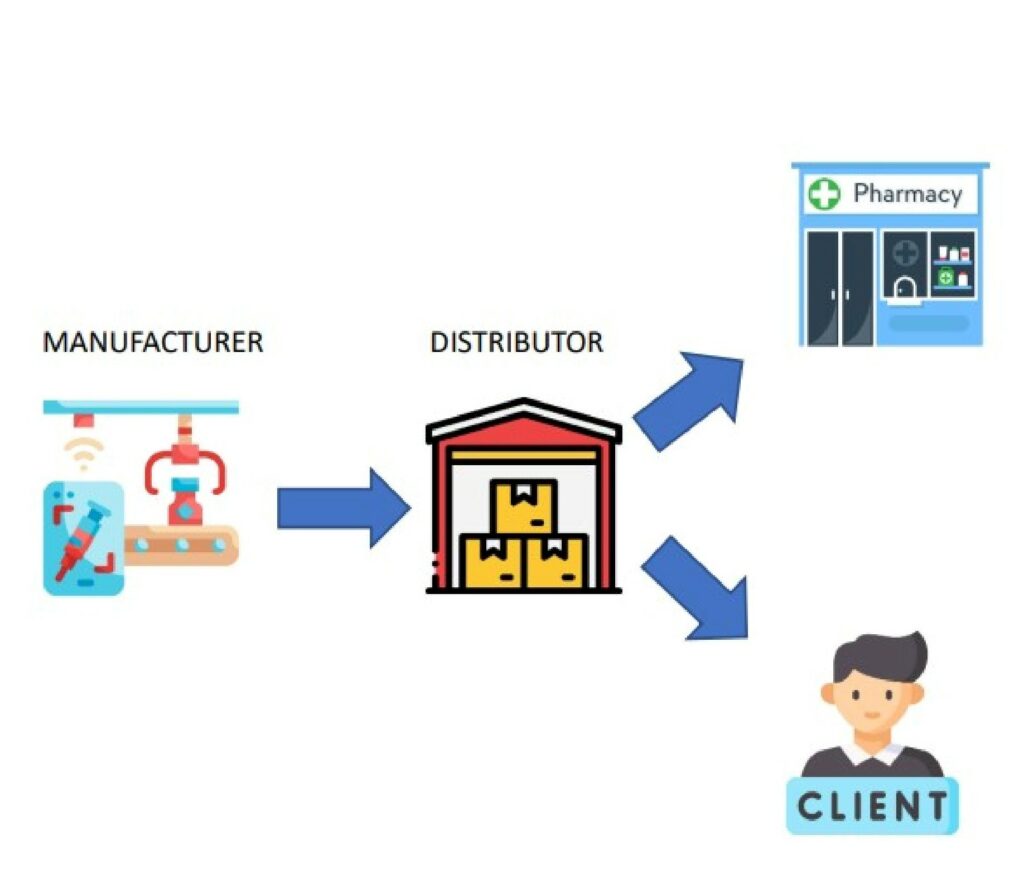Supply chains are logistic systems that seek to distribute a specific category of products to the final client, efficiently. They are becoming increasingly layered in order to handle the flow of products, and therefore increasingly complicated. Supply chains usually consist of a number of activities and involve different entities, which need to work together to adequately produce and deliver the treated goods. Today, supply chains face various challenges, which have become the subject of various studies and research.
Many industries constantly encounter precarious situations in terms of supply logistics and the pharmaceutical industry is no exception. In the case of the latter, such situations could lead to unfortunate circumstances, possibly even placing the health of individuals at risk.
The aim of this project was to adopt blockchain technology towards devising a solution to the gaps in traceability, which could affect the functionality of a pharmaceutical supply chain and potentially endanger the life of end-consumers. The adopted technology would ensure secure and transparent storage and transfer of information. A network of computers would work collectively to authenticate and log transactions, forming an unchanging, permanent record known as a blockchain. Given the decentralised nature of this technology, data would not be under the control of a single entity. Advanced encryption could be utilised to assure its reliability and security.
The core of this work consists in the development of a decentralised application, through which the participants ‒ who correspond to the members of the supply chain ‒ would have the opportunity to buy pharmaceutical products and track every single step taken by them. A decentralised application, or dApp, is nothing more than a program running on the blockchain, and it takes advantage of powerful tools called smart contracts. These are strongly associated with blockchain technology, and could be defined as digital agreements that execute the terms of a transaction among multiple parties without human intervention. They are computer programs which, once the contract’s criteria would have been satisfied, automatically carry out the conditions of the agreement.
This project provides a demo of a dApp capable of hosting four types of users, more specifically, four main elements of the pharmaceutical supply chain: Manufacturers, Distributors, Pharmacies and Clients. The participants would be able to buy the medicines from the appropriate entity and keep track of the details regarding each step taken by the products along the supply chain. By exploring different design patterns of the smart contracts, the platform could allow for multiple-use cases.
The application was built on the Ethereum blockchain and the research extended its objectives by performing an evaluation of some of the most-used Ethereum Virtual Machine (EVM) networks. These can be seen as different blockchains capable of executing Ethereum smart contracts but with distinct mechanisms and protocols. Therefore, an accurate comparison was performed to study how the behaviour of the proposed implementation would change with the respective network.

Figure 1. Outline of the pharmaceutical supply chain managed by the decentralised application (dApp)
Student: Michele Pagano Mariano
Supervisor: Prof. Joshua Ellul
